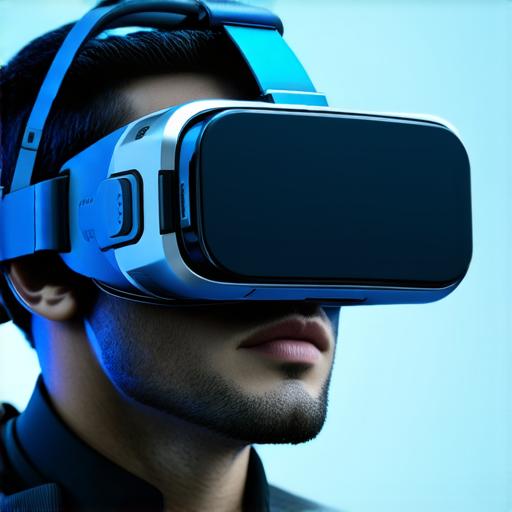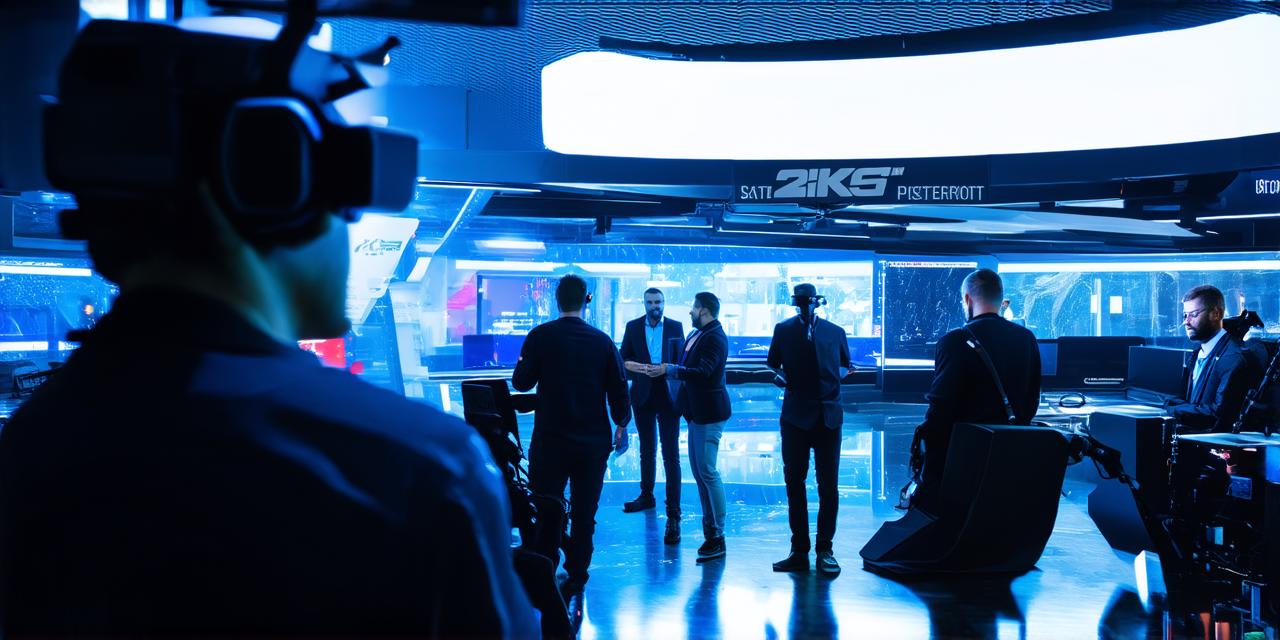Introduction
Virtual reality technology is rapidly gaining popularity in various industries, including gaming, education, healthcare, and tourism. As the VR market continues to grow, questions about who owns VR technology are becoming more common. In this article, we will explore the ownership of VR technology and its implications for businesses, consumers, and society as a whole.
Who Owns VR Technology?
Virtual reality technology is a complex system that involves many different components, including hardware, software, and content. The ownership of VR technology can be traced back to the development of the first VR headset in 1968 by Ivan Sutherland. Since then, numerous companies have entered the market, developing their own VR technologies and creating new applications for it.
One of the biggest players in the VR industry is Oculus, a company acquired by Facebook in 2014 for $2 billion. Other major players include HTC, Samsung, Sony, and Google, which all have their own VR headsets and software.
The Importance of Ownership in the VR Industry
Ownership is a crucial factor in the VR industry because it determines who has control over the technology and its development. Companies that own VR technology have the power to set prices, dictate terms for developers and content creators, and determine which products and services are available to consumers.
The Role of Intellectual Property in VR Ownership
Intellectual property plays an important role in the ownership of VR technology. Patents, trademarks, and copyrights are all used to protect the intellectual property of VR companies and ensure that they have exclusive rights to use their technologies.
For example, Oculus has patented many of its key VR technologies, including the tracking system used in the Oculus Rift headset. These patents give Oculus exclusive rights to use these technologies and prevent others from copying or stealing them.
The Impact of Ownership on Consumers
The ownership of VR technology can also impact consumers. When a single company controls the majority of the market, it has the power to set prices for its products and services, which can make VR technology less affordable for consumers.
Additionally, the lack of competition in the VR industry can limit innovation and make it harder for consumers to find new and exciting applications for VR technology. This can lead to a lack of consumer interest and slower adoption rates for VR technology.
Case Studies: Who Owns VR Technology?
To better understand who owns VR technology, let’s look at some case studies of companies in the industry.
Oculus
Oculus is one of the largest players in the VR industry and was acquired by Facebook in 2014 for $2 billion. Oculus has patented many of its key VR technologies, including the tracking system used in the Oculus Rift headset.
Oculus’s ownership of VR technology has given it the power to set prices and dictate terms for developers and content creators. However, this has also led to criticism from some developers who argue that Oculus’s strict policies make it difficult to create new and innovative applications for VR technology.
HTC
HTC is another major player in the VR industry, with its own line of VR headsets and software. Unlike Oculus, HTC has not been acquired by a larger company, which gives it more freedom to develop its own technologies and set prices for its products.
HTC’s ownership of VR technology has allowed it to compete with Oculus and other companies in the industry, leading to new innovations and applications for VR technology. However, HTC’s smaller size compared to Oculus makes it less able to influence the direction of the industry as a whole.
Comparing Ownership Models: Who Owns VR Technology?
To better understand who owns VR technology, let’s compare ownership models in the industry. There are three main models:

- Open Model: The open model is characterized by a lack of ownership or control by any single company. Instead, ownership and control are distributed among multiple parties, including developers, content creators, and users. This model allows for greater innovation and collaboration, as anyone can contribute to the development of VR technology.
- Closed Model: The closed model is characterized by ownership and control by a single company. This model allows for greater control and standardization, as the owning company has the power to set prices, dictate terms, and determine which products and services are available to consumers.
- Hybrid Model: The hybrid model is a combination of the open and closed models, with ownership and control shared between multiple parties. This model allows for greater innovation and collaboration, while still providing some level of standardization and interoperability.
The Future of VR Ownership: Who Owns It?
As the VR industry continues to grow, questions about who owns VR technology will continue to be asked. The future of VR ownership is uncertain, but it is clear that ownership will play a crucial role in shaping the direction of the industry.
Some experts predict that we will see more openness and collaboration in the VR industry, as companies work together to develop new technologies and applications. Others predict that we will continue to see dominance by a few large companies, with smaller developers and startups struggling to compete.
Conclusion
Virtual reality technology is rapidly changing the way we interact with the world around us. As the VR market continues to grow, questions about who owns VR technology will become even more important. Understanding the role of ownership in the VR industry and its implications for businesses, consumers, and society as a whole is crucial for navigating this exciting new field.
FAQs
1. Who is the largest player in the VR industry?
* Oculus is currently one of the largest players in the VR industry, having been acquired by Facebook in 2014.
1. What is the impact of ownership on consumers in the VR industry?
* Ownership can impact consumers by affecting the prices and availability of VR technology, as well as limiting innovation and competition in the industry.
1. How does intellectual property play a role in VR ownership?
* Intellectual property, such as patents and trademarks, plays a crucial role in determining who owns VR technology and has the power to develop and distribute it.
